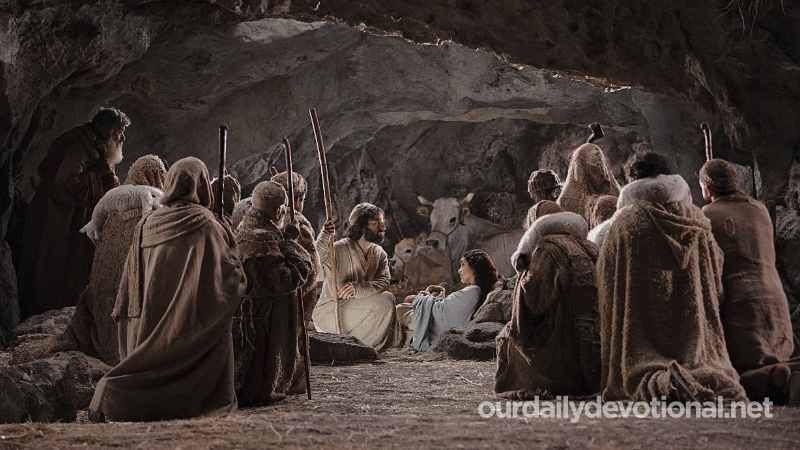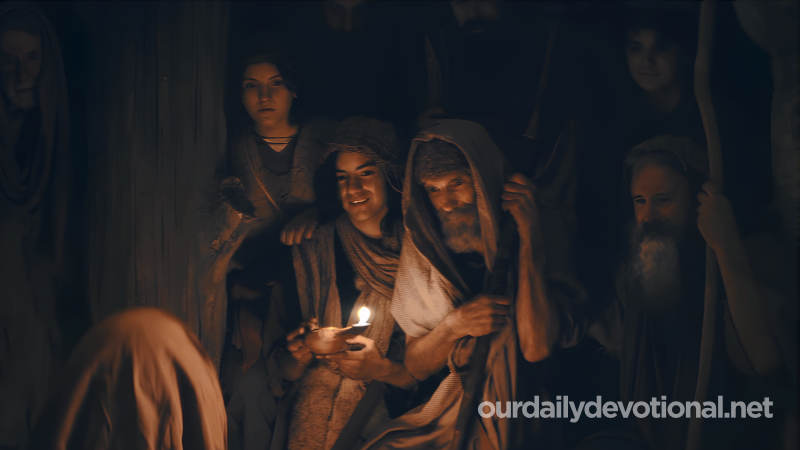This and the offering by mistake form a case apart from the offerings. In the burnt offering and the peace offering the offerer comes as a worshiper, and by the laying on of hands he identifies himself with the acceptability and acceptance of the victim; On the other hand, in the sin offering the victim was identified with the sin of the offerer.
The sin offering was the provision for when any member of the redeemed people had sinned, in order to prevent judgment from falling on the offerer. This general characteristic is always constant, even if the details differ.
The Day of Atonement is kept apart: the blood of the sin offering was brought into the Holy of Holies, and sprinkled on and before the Mercy Seat. Atonement had to be made according to the demands of the nature and majesty of the throne of God.
This type was repeated every year to maintain the people's relationship with God, because the Tabernacle of Jehovah remained among them in the midst of the people's impurities. Atonement was also made for the holy place and the altar; All of this was reconciled through the blood of the sin offering, and on the basis of the same blood, the sins of the people were administratively carried away to a desert land (Lev. 16).
In case of sin on the part of the priest or the entire congregation, the communion was interrupted: therefore, the blood had to be taken to the holy place, sprinkled there seven times, and placed on the horns of the altar of incense (the place of priestly allegiance) for the reestablishment of communion.
In case it was the sin of a leader of the people or one of the members of the people, the blood was smeared on the bronze altar, the place where the people gathered. With this, the communion of the individuals of the town was also restored.
The sin offering is not said to be, as a whole, a sweet smell: sin is the dominant concept in this offering, but the fat was burned on the altar as a sweet smell (Lev. 4:31). Christ was, at all times (both on the cross and in life), a delight to God. The sin offering that was consumed by the priest is declared "a most holy thing" (Lev. 6:29). All of this is a type of Christ, priest and victim, with our cause at his heart.
In the cases provided for in chapter. 5, vv. 1 - 13, where violations of rules or ordinances are specifically discussed, the economic capacity of the offerer is considered.
If someone could not take a lamb or a goat, he was allowed to take two turtledoves; and if even he could not afford these, not even two palominos, he could then take the tenth of an ephah of fine flour.
This does not seem to accord with the need for bloodshed for remission, but the memorial burned on the altar typified God's judgment on sin. It made the offering available to everyone, so that the poorest of souls would have a way to meet God regarding their sin.
Poverty represents little light or ignorance, not rejection or indifference toward Christ. And when the flour reached the fire of judgment on the altar, Christ's death for sin was not left out in this form of offering for sin, the simplest of all.
Meaning of OFFERING FOR SIN
This and the offering by mistake form a case apart from the offerings. In the burnt offering and the peace offering the offerer comes as a worshiper, and by the laying on of hands he identifies himself with the acceptability and acceptance of the victim.







